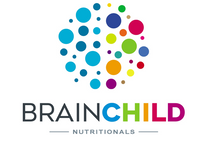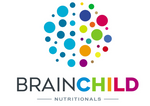What is a Leaky Gut Syndrome?
Leaky Gut Syndrome is a condition which occurs when chronic inflammation causes the gut wall to develop microscopic leaks. Normally there is a barrier between the food within the intestines and the blood vessels that pick up the digested food and circulate it throughout the tissues and organs. These blood vessels are located below the layer of cells lining the gastrointestinal tract. Digested food normally enters those blood vessels using two routes. It either passes through the cells lining the intestine or through membranes in between the cells.
What Are The Best Supplements To Help With Leaky Gut ?
Probiotics:
The main stream opinion, is that supplementing with a high-quality probiotic is absolutely necessary for a healthy gut. This is even more true for people with signs of a leaky gut. Without a viable probiotic solution, it’s very difficult to help repairing leaky gut. Certain strains of probiotics enhance immune function, whereas, others promote health or hormone balance. We recommend to take specific strains according to the benefit one needs. This approach helps maximize the natural healing benefits. When reading probiotics labels keep a look out for the genus, species, and strain. The main points in probiotics are High CFU Count – Make sure that you only take a probiotic that has at least 10 billion CFUs. Also, look for a supplement with multiple bacterial strains that have high survival rate over time. We provide three formulas. A basic support, A high support and a maximum support - Check it out in the link below:
Intestimend is unique, using time-honored herbs combined with a very special blend of gentle nutrients to support and increase the integrity and function of the entire gut wall protection system, while at the same time calming inflammation.
[X] Support for glutathione production and detoxification.[X] Support for the cellular protective barrier of the gut.
[X] Support for sulfation - part of your gut''s defense system.
[X] May calm or prevent food reactions, including allergies,casein and gluten.
[X] Supports detoxification of toxins and metabolites. May provide symptomatic relief of gut disorders such as Irritated Bowel or Leaky Gut.
One of the greatest assets your gut can have is to take one or two capsules of digestive enzyme supplements before and after your meal. Enzymes help break down complex sugars, starches and proteins which may overtime reduce intestinal inflammation.
Typical helpful enzymes:
Protease – breaks down proteins (including gluten)
Lipase – breaks down fatsAmylase – breaks down starches
Lactase – breaks down lactose in dairy
We propose a targeted enzyme formula and a more broad enzyme formula Called Zymendica
Slippery elm has been used as an effective gut healer promoting herb for centuries in the United States. This herb contains mucilage and stimulates nerve endings in the body’s intestinal tract to increase the natural mucus secretion, which is an instrumental part of the stomach’s protective lining and helps combat ulcers and excessive acidity in the digestive system. It also contains important antioxidants that help relieve inflammatory bowel symptoms.
Slippery Elm is an essential part of the Intestimend formula.
MSM is an organic sulfur-containing compound that’s used to lower inflammation and help restore healthy bodily tissue. The reason so many benefits are attributed to the MSM supplement is because MSM provides biologically active sulfur, which is the fourth most plentiful mineral in the body and needed for many different critical bodily functions every single day. MSM can help rebuild the lining of the digestive tract and lower inflammation/allergic reactions to certain foods. It’s also useful for leaky gut syndrome since it can help stop particles from leaching out the gut through small junction openings, where they can enter the bloodstream and ignite an inflammatory response. This is due in part to the sulfur in an MSM supplement, which is important nutrient for digestion. MSM is available in BrainChild Intestimend formula.
NAG also known as, N-acetyl glucosamine has recently gained popularity because it is now widely accepted and several studies have shown that it can help protect the lining of your stomach and intestines.
Because of its anti-inflammatory effects, NAG has shown promising indication that it may help with osteoarthritis and inflammatory bowel disease (IBD), including ulcerative colitis and Crohn’s disease.
To reduce inflammation is a main goal of supplement in the support of a leaky gut. It’s very important to be mindful of both your omega-6 and your omega-3 polyunsaturatedfatty acid intake. Omega-6 polyunsaturated fats, which are found in large quantities in modern vegetable oils, meat from grain-fed animals, and many nuts and seeds, increase inflammation. Omega-3 fatty acids, which are found in large quantities in wild-caught fish, pastured/free-range eggs, and meat from pastured animals, decrease inflammation. To help reduce overall inflammation and heal the gut, aim for a 1:1 ratio of omega-3 to omega-6 fatty acid intake in your diet. You can supplement with a good quality fish oil.
check Nordic natural fish oils to achieve this.
Bioflavonoids are very helpful to aid the intestines to heal as they help to reduce inflammation. Because they help to inhibit the release of histamine, you may benefit by their addition to your health regime. Quercetin together with vitamin-c doubles the benefit of such a supplementation. Highly recomended as an add on for leaky gut, Brainchild Nutritionals complete liqui-c is often used.
Click here to see vitamin C page.
Unfortunately, leaky gut syndrome also creates a long list of mineral deficiencies because the various carrier proteins present in the gastrointestinal tract that are needed to transport minerals from the intestine to the blood are damaged by the inflammation process. For example, magnesium deficiency (low red blood cell magnesium) is quite a common despite a high magnesium intake through regular diet. If the carrier protein for magnesium is damaged, magnesium deficiency develops as a result of malabsorption. Muscle pain and spasms can occur as a result. Which ultimately contributes to higher discomfort. BrainChild Nutritioanls Liquid magnesium provide an optimal formula to replenish depleted levels of magnesium. Check it out here.
Herbathione has been developed and formulated with outstanding precision for it''s support of natural detoxification and healthy liver function. It combines western, chinese and indian herbs, focusing mainly on helping redox/recycling glutathione. Hepatic liver glutathione, plasma glutathione, cerebral glutathione was all increased by using these herbs in academic studies. It is a similar mechanism as homeopathics, but in a concentrated tincture.
The Oregon grape root is part of the berberine family know for it''s rich root. BrainChild Nutritionals carefully screened for potency purity and quality all roots and selected the freshest. The extract from the oregon grape root provides support the body in a wide range of bacterial infections.
What Causes Leaky Gut Syndrome?
Our modern lifestyles make us all vulnerable to leaky gut syndrome. We constantly irritate the lining of our digestive tract with high intake of sugars, food additives, herbicide-pesticide residues, alcohol and caffeine, dangerous bacterial strains, and FDA approved drugs.
This constant irritation results in chronic inflammation of the GI tract that leads to leaky gut syndrome. Antibiotics can kill our friendly bacteria causing an over-growth of fungi, yeast and dangerous bacteria that contribute to the chronic inflammation that leads to leaky gut syndrome. Many of our autistic kids cannot colonize friendly bacteria in their guts and are likely to have systemic inflammation, making them more susceptible to problems like leaky gut.
When the gut lining becomes inflamed or damaged, this disrupts the functioning of the system. Spaces open up in the gut wall, and allow larger objects, such as large food antigen particles, to be absorbed into the body. Normally the body sees only tiny food antigens. When it sees these new, larger ones, they are foreign to the body''s defense system. This results in the production of antibodies against harmless substances such as food. Here are just a few of the possible factors contributing to inflammation in the gut
- Chronic Stress
- Intestinal infections
- Small intestine bacterial overgrowth
- Environmental contaminants
- Excess alcohol
- Poor diet
- Use of NSAIDS and other medications
What''s so bad about a few Leaks?
Over 70% of food absorption occurs through the membranes. However, if the membrane barrier is damaged, larger particles can enter the bloodstream. And this is bad - large particles of food are not supposed to be in the bloodstream, and can trigger food allergies and sensitivities. It is quite common for newborn babies to suffer from leaky guts, which explains why babies who eat table food during their first six months often suffer with food allergies. But once the immune system has developed and matured, a normal gut no longer experiences leaks. Leaky gut is common in individuals with systemic inflammation and toxic overloads, such as those on the autistic spectrum or people suffering with a bowel condition or environmental toxicity. IntestiMend, by BrainChild, is our answer to help calm the symptoms of a leaky gut, and give your body the raw materials which may help it fix the damage and reduce inflammation.
It might sound good for the gut to be leaky, because it would seem that the body would be better able to absorb nutrients, such as amino acids, essential fatty acids, minerals and vitamins. For the body to absorb a nutrient, such as a vitamin or mineral, it must be attached to a carrier protein. This protein hooks onto the nutrient and actually carries it across the gut wall into the bloodstream. When the intestinal lining is damaged through inflammation, these carrier proteins get damaged as well, so now the individual is more vulnerable to developing mineral and vitamin deficiencies.
Once the intestinal lining is riddled with microscopic holes, food allergies can develop. This is especially true of everyday foods. Some foods are more likely to cause allergies than others. At the top of the list of offenders are cow''s milk, soy products, peanuts, corn, cheese, coffee and chocolate.
When the immune system attacks particles of these particular foods, it also worsens any preexisting autoimmune disease - such as rheumatoid arthritis, Crohn''s disease, ulcerative colitis or lupus. Since many of these conditions also exacerbate the leaky gut syndrome, flare-ups often mimic symptoms of exposure to certain foods.





